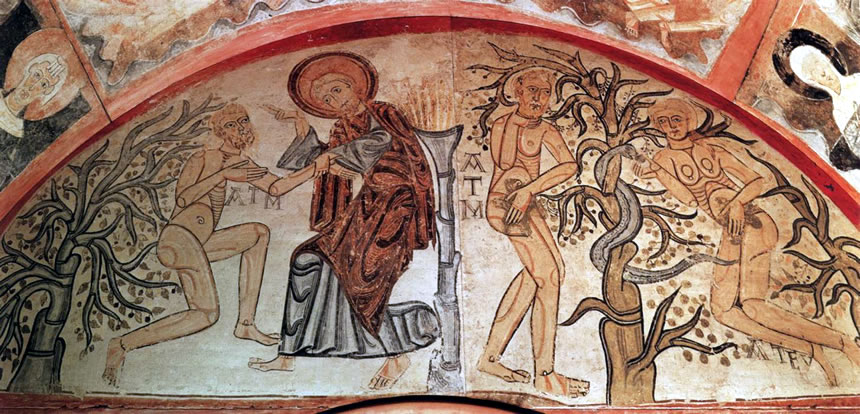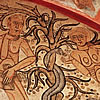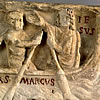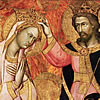Effects of Original Sin
When God created mankind, he gave use certain gifts to perfect us. He gave us preternatural gifts. These are abilities that do not belong to our nature but are abilities that our level of nature can have. If a horse were given wings, that would be a preternatural gift because wings do not belong to the nature of a horse. But since wings do appear in the nature of animals such as birds – and the horse is an animal – then it is something a horse can have.
There are three preternatural gifts that God gave us. The first is infused knowledge. This means mankind came with all the knowledge in the natural universe. We did not need to study or experience things to know things. If we were a computer, our hard drive would be loaded with information the moment it was put together.
The second preternatural gift is immortality. This means our bodies are impervious to disease and death. What a wonderful gift! Since we are spiritual beings, our soul cannot be destroyed; and the gift of immortality allowed our material bodies to be forever with our immortal souls forever.
The third preternatural gift is integrity. Let us pause here a bit to review what we know of spirits. A spirit does not take up space. It is immortal. It knows, loves, and can control things (at least what God allows it to control.) So our soul animates our bodies – it is the soul telling the body what to do. Yes, the brain sends out the electrical impulses to the muscles, but it is the soul that wills it. When the body is in perfect union with what the soul wills, then there is integrity.
God also gave us one very important and supernatural gift: sanctifying grace. This is a grace that allows us to share the divine nature of God. It is supernatural because it is above (super) our nature to become like God, but this gift does just that. I like to think of it as an umbilical cord that attaches us to God. Like a baby in a womb shares nutrients with its mother, for as long as we are attached to God, we share his divine nature. It makes us like God, without replacing him, and that is truly awesome!
Enter the serpent. He caused Adam and Eve to disobey God through a very malicious temptation. He got them to disobey God by telling them they didn’t need God to tell them what they can and cannot eat.
But the snake said to the woman: “You certainly will not die! God knows well that when you eat of it your eyes will be opened and you will be like gods, who know good and evil.”
Genesis 3:4-5
By eating the forbidden fruit, they can replace God and determine what they can do. And that is a totally different doctrine than what sanctifying grace, which implies a union with God. So when Adam and Eve disobeyed God, they categorically stated through action that they didn’t want God. They wanted separation.
Since God loves us and will give us what we want, he gave mankind separation. It was no hazy decision on the part of mankind – remember we had infused knowledge. That is why the culpability of Adam and Eve was great because they knew what it is they were choosing. We must not see Eve as a simpleton who was tricked by the serpent. She put up a fight.
We lost all the gifts because they were dependent on the giver. Now, we need to learn and experience thing in order to know. Our bodies are weakened and are susceptible to disease and death. Now our bodies rebel against what our will knows to be good. It is attracted to sin and evil. We call it concupiscence. We also lost the most important gift of all – sanctifying grace. Sanctifying grace is important because whatever mankind did, we did it with a shared divine nature and made our works eternal that are worthy of an eternal God. So when we lost sanctifying grace, no matter what mankind would do to make atonement for this original sin would fall short in terms in merit because we could not do eternal works without sharing God’s divine nature. In short, mankind dug a hole he couldn’t get out of.
Human nature, in effect, was weakened. It would take Christ’s salvific actions to patch it. The apostles understood that the normal way to restore sanctifying grace is through sacramental baptism. It restores our relationship with God back to its original and intended state. Although the preternatural graces are forever gone, we are given other graces to battle our human weakness. We can never become perfect through our own weakened efforts. The only way to perfection is to participate in graces that fertilize our desire for virtue.

A Sky Full of Stars
Know Our Lady through her Titles in the Litany
The Church helps us understand who Mary is by honoring her with different titles in the Litany of the Blessed Virgin Mary. Unfortunately, over time and difference of culture, we might not grasp what it is the Church is ascribing to her and lose that opportinity to get to know her.
In A Sky Full of Stars, each title of the Litany is explained so we get know Mary more and fall in love with her all over again.
Get your copy now either in Hardbound, Paperback, or Kindle
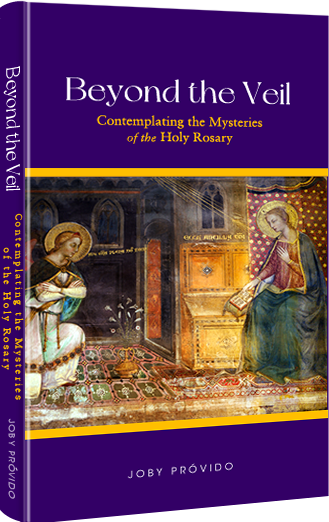
Beyond the Veil
Contemplating the Mysteries of the Holy Rosary
Prayer giants like Pope St. John Paul II, Pope Paul VI, Bl. Archbishop Fulton Sheen, and Bishop Robert Baron advocate that we contemplate on the mysteries of the rosary while we say the vocal prayers. Unfortunately, there are not many books that teach us how to do this. Beyond the Veil comes to the rescue by suggesting seven ways we can pray the rosary the way it was intended.
The larger part of the book offers mental images for each of the mysteries we can use in our contemplation, for how can we imagine the scenes in the rosary if we don't know about them?
Get your copy now either in Hardbound, Paperback, or Kindle
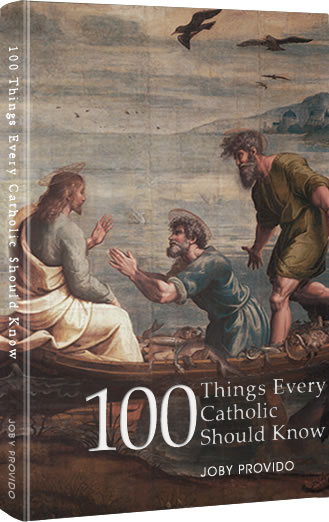
100 Things Every Catholic Should Know
Whether or not you are new to the Catholic Church, or struggling, or lapsed, or dynamically involved, this book will enlighten you with the essentials of the Faith that have been handed down to us by the apostles.
Each of the 100 topics is easy to read and distilled into bite-sized portions. Through cross-referencing, the book also shows how the topics are interrelated. Those who are new to the Faith will find this book an edifying handy reference, and those who have simply forgotten will find it a great review material that might spark a new love for God and religion.
Get your copy now either in Hardbound, Paperback, or Kindle
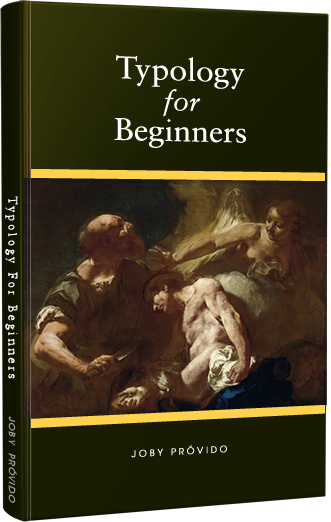
Typology for Beginners
A Catholic Perspective on understanding the New Testament through the Old Testament
First-century Jews converted to Christianity in droves because of the way the New Testament was written to show Jesus was the Messiah promised by the Old Testament. We also learn about how Mary is the New Eve and the Ark of the Covenant in the way the writers portray her.
Through typology, the patterns that connect the Old and New Testaments make the Bible stories more accessible so that one becomes excited to read Sacred Scripture again.
Get your copy now either in Hardbound, Paperback, or Kindle


